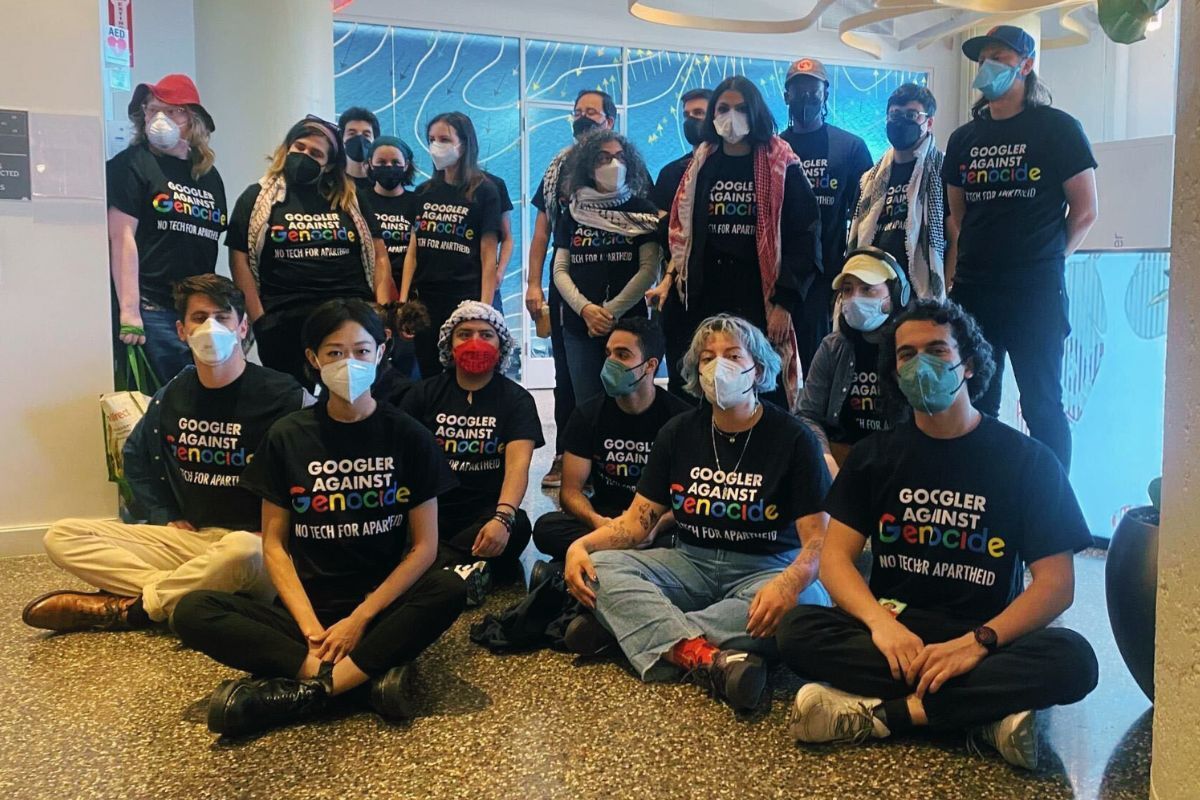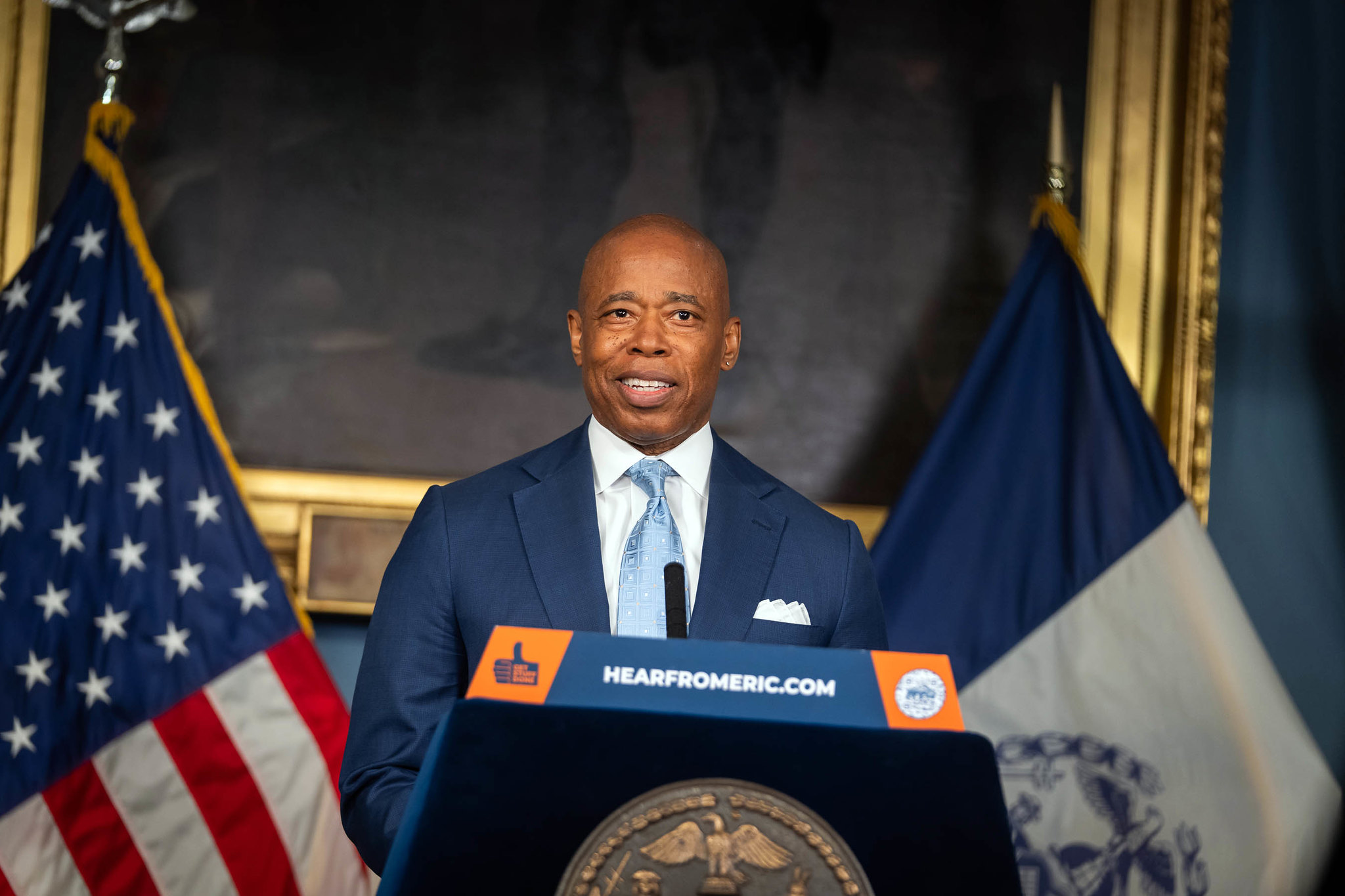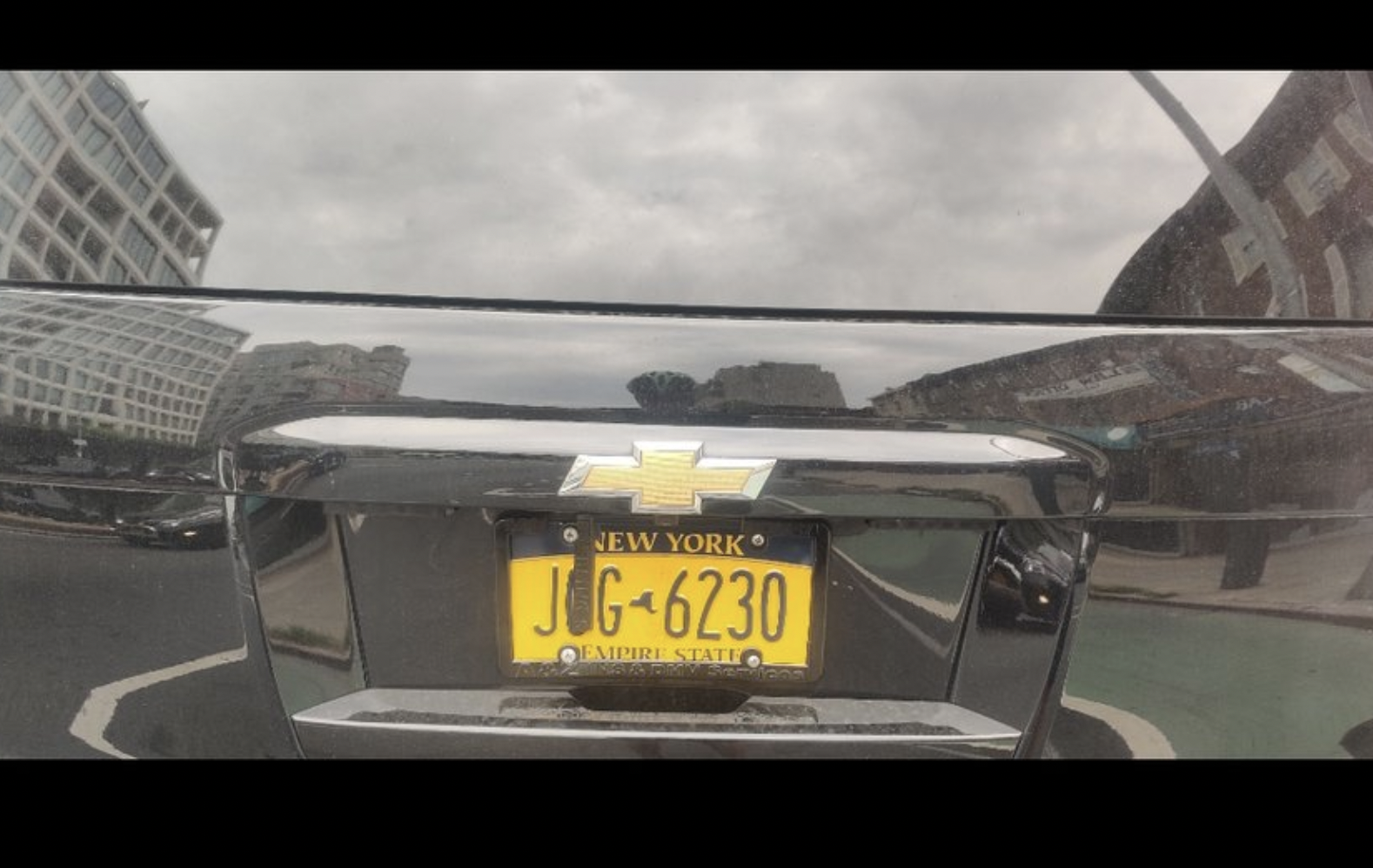Former Rikers Watchdog: ‘This Whole Fucking Thing Is a Racket’
Sarena Townsend, axed by Adams, says “corruption” is poisoning New York City's jails.
4:05 PM EDT on May 3, 2022
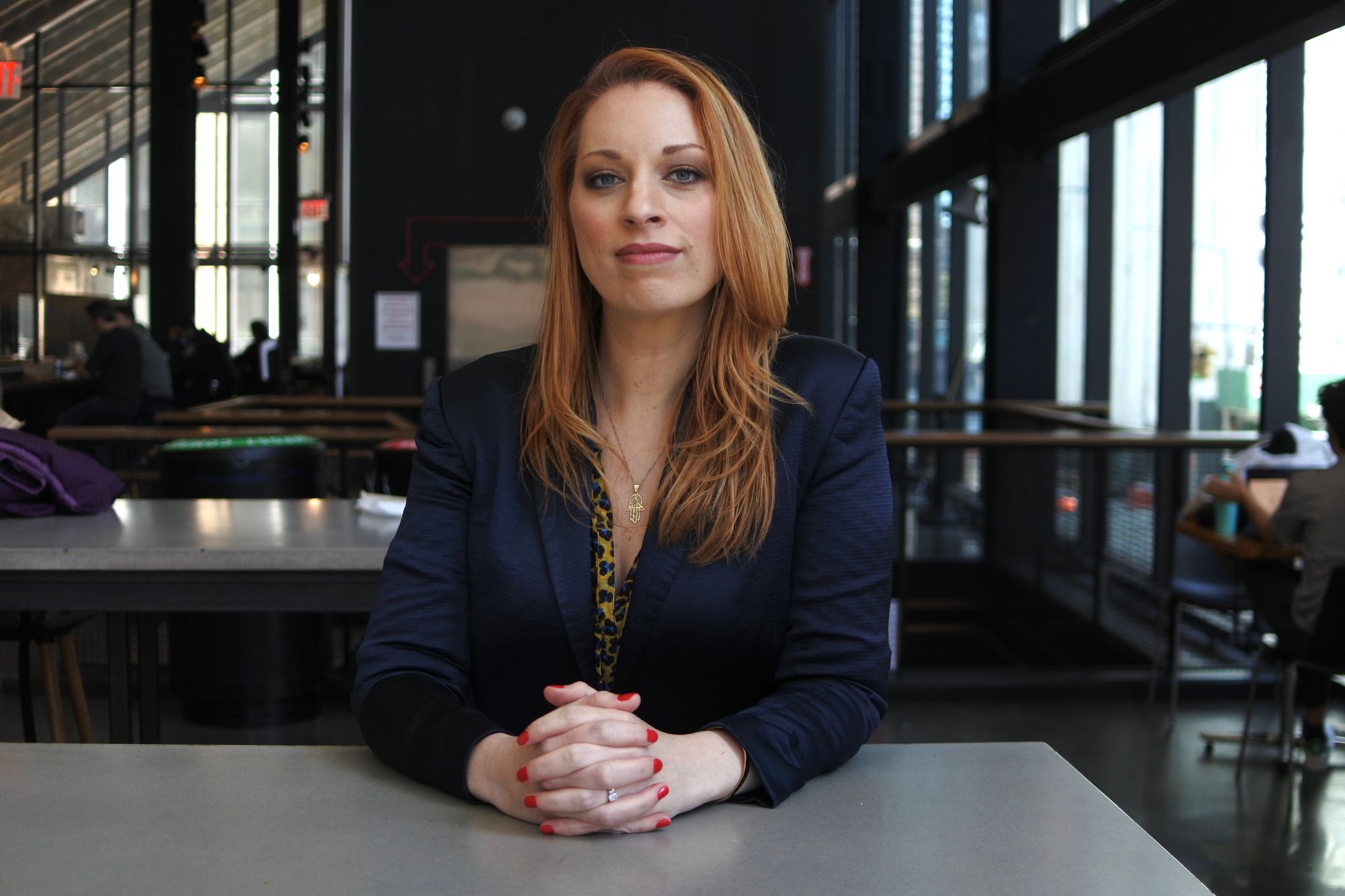
Sarena Townsend (JB Nicholas/Hell Gate)
Until Eric Adams became mayor, Sarena Townsend was tasked with investigating and prosecuting staff misconduct in New York City's jails.
Since Townsend started at the Department of Correction in 2016, violence on Rikers Island steadily increased. Stabbings and slashings are at the highest rate since anyone started counting. The federal monitor tasked with ensuring New York City improves conditions there has said that if dramatic changes don’t come soon, a federal takeover of the City's jails may be in order—an outcome Mayor Adams has vowed to fight.
As the Deputy Commissioner for Investigations, Intelligence and Trials for the DOC, Townsend was praised by reformers for pushing through a massive backlog of disciplinary investigations. Her work earned her scorn from the top Correction Officer union official, who accused her of being "overzealous."
After Mayor Adams was sworn in, he appointed Louis Molina to lead the Correction Department, and Molina fired Townsend on his first day on the job, January 3.
Townsend is now a partner at Townsend, Mottola & Uris Law, a firm focused on criminal defense and civil rights litigation.
Last week, Townsend spoke with JB Nicholas about her time in the DOC, her firing, and some of the factors that have made the ongoing crisis of Rikers Island so difficult to resolve. Their conversation has been edited for length and clarity.
JB Nicholas: Rikers Island has a lot of problems. From your perspective, what's the biggest problem?
Sarena Townsend: Corruption. You see corruption in a lot of different places on Rikers Island. When I say corruption, I mean from both the union, which basically runs the place if you have a willing partner in the commissioner and mayor which you do now. But I also saw corruption with a lot of the officers and captains. Look: I'm not going to sit here and say all cops are bad, not gonna say all correctional officers are bad, they're really not.
But the culture is toxic. And you have a lot of good people with good intentions coming on to the job, who aren't strong enough to resist the temptations and the toxicity of the culture that lives on Rikers Island.
What I mean by that is the culture of gaming the system. Calling out sick because you can, because you have unlimited sick leave when you're not really sick. Taking advantage of all of the rules that were put into place that had good spirit when they were created, but are now being abused. Bringing in contraband. People get into that game. Some of them come in with that plan — not many. Some of them get enticed. The inmates will entice them with money that they can give them. It's not the detainee on the island physically giving them money; they're working it out on the phone with their contacts in the street. And it's an enticing prospect.
Or they'll threaten officers. They'll say, we know where you live, you know, you're from the same block as me. I know your family, you gotta get me this, that, and the other.
So they'll bring in all sorts of contraband, whether it's a weapon or drugs, or anything that has value. It could be cigarettes—that's not technically illegal, but you can't do that as an officer. K2-soaked papers, that's a big thing, because that's easy to get in. Stuff like that. And I've seen otherwise good people fall into that trap. It's the culture, and it is rampant.
Tell me about some of the difficulties that you faced in trying to clean that up.
Two of the biggest difficulties were the union and the structure of discipline in general. The union is very powerful. And it's not just COBA. It's also the Corrections Captains Association, the CCA, which is the union for the captains. There's also a third union, the ADW / DW union, the Assistant Deputy Warden / Deputy Warden union. That’s less influential because they have way fewer members. There aren't that many ADW and DWs. There are thousands of correction officers, and there are many, many, many captains.
The presidents of those unions have an arm-hold, not only politically, but also over the commissioners. There are a lot of threats that go on behind closed doors about exposure in the media.
As the head investigator and the head disciplinarian, I would get asked by people, people who outranked me, "What's going on with this case? Can we do better on this case?"
I think that the unions had a better "in" with people who had my job before me. I kind of hit that wall with them. And they didn't like that. They knew that they couldn't convince me. So they would go around my back and have a commissioner or someone else reach out to me and say, "Well, what's going on with this case?" Which is a very uncomfortable position for me to be in.
That was the difficulty of cleaning the place up: You have a very, very financially and politically powerful union running the show.
Was your budget a part of the problem? Did you always have enough money to do what you felt you had to do?
I did not have enough investigators to do what I needed to do, that's for sure. And I also didn't have enough attorneys to do what I needed them to do. The attorneys are the ones who would prosecute and the investigators were the investigators of the misconduct. It was very hard to recruit investigators and attorneys. One of the reasons is the salary was not great for the investigators. It’s maybe $60,000. And it's a lot of work!
What were the top three offenses that you were investigating?
Use of force was the vast majority of what we investigated. Before the federal monitor came on board, the Investigation Division was not looking into every single instance of use of force. They would look at the ones that looked really bad. But the federal monitor required us to investigate every one, no matter how serious. In 2021, I think it was about 7,000 cases for us just on use of force alone. So that's number one by far.
What are the other two?
I would say PREA —The Prison Rape Elimination Act — which is any kind of sexual harassment or sexual assault by staff against inmates, or inmate on inmate. We had a lot of those. A lot of those allegations ended up not being true, but we had to investigate.
Number three would run the gamut. We had a bunch of officers getting arrested. That happened a lot. Usually the arrests were DWI, or domestic violence, or stealing, petty larceny, shoplifting, stuff like that. It's like, ridiculous that they don't lose their jobs for this. They get discipline, but oftentimes they don't lose their jobs.
Those are probably the top three. But of course, we would have a lot of investigations into contraband introduction. Keep in mind, any case that rises to the level of obvious criminality, such as contraband introduction, those are handled by the citywide Department of Investigation. We don't conduct criminal investigations. We'll do our own investigations alongside DOI, just because once the criminal process is over, we'll also want to fire the person. But the crux of those investigations gets handled by DOI. So although the numbers are probably large with respect to those types of investigations, they didn't occupy our caseload as much because they're mainly handled by DOI.
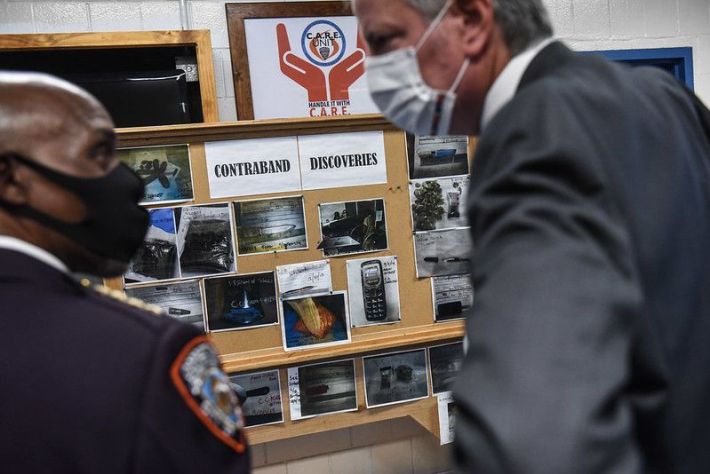
Tell me about the problem with absences among corrections officers on Rikers Island.
The biggest problem of absences is that the investigative process doesn’t lie with my former division. The absenteeism investigations are handled by a facility called the Health Management Division. It's run by uniformed officers, captains, and deputy wardens. So you're having fellow officers investigate each other.
Aside from that being a biased process, these are not really trained investigators, so it's kind of a bullshit process. For years and years, people were gaming that system, calling out sick, but only up to a point, because after a certain number of days, you become what's called "chronic," and there's more oversight over you. So they would call out, 30 days instead of 40, then come back to work, and the clock would stop. They knew how to game the system so that they would be undetected.
They're getting paid, but they're not showing up to work?
Absolutely. It was happening plenty before COVID, but it seemed like the department was able to accommodate those absences. It didn't become a thing, until after it was too late. People were doing it forever, but the department was still able to have people on posts. But when COVID happened, a ton of people started going out because they caught COVID, and also to abuse that system a little bit.
So you went from an unacceptable amount of people being out all the time, in a rotational way, to this horrific situation where, holy shit, the scale has now tipped. Now, we cannot even have people on post. We have unstaffed housing areas. People are just not showing up to the point that the Department is falling apart: They can't get services to the detainees, they can't get them medical attention, they can't get them to court, they can't get them their rec time, they can't get them programming.
When all of that became really obvious, which is really when Schiraldi [former Commissioner of Corrections, appointed by Mayor Bill de Blasio in 2021] came on board, he was like, "Whoa, this is really bad. Sarena, I want you and your team to look into this." Because like I said, those had not been my investigations. Until Schiraldi changed it.
When I started getting involved, the unions went nuts even more than they had before against me. Because we were doing sting operations. We were going to their homes. DOI helped us and started knocking on doors. We found people on Facebook and other social media posting pictures of themselves on vacation. They claim to be out sick with a bum hip, and they're jumping off cliffs into the water.
We even sent teams to the facilities to locate people who were hiding in offices under desks, because they didn't want to get redeployed to the jails where they needed to be. Because some people did come to work, but their work was not typically being on post or working with inmates. And then in order to fill the posts of the people who were not showing up, they would be redeployed, but they didn't want to go.
Why can't you just order them to do it?
You can. But Schiraldi had a great anecdote, where he literally went to tour a jail, and he saw that there was an excess of people there. "Oh, why don't you go to [work at] this facility?" And they defied him, the Commissioner. And he was with the Chief of Department—the two highest ranking people! That is how aggressively toxic the culture is.
They know they can get away with it. All they have to do is dial 911 to get that ambulance to show up and say, "I'm feeling heart palpitations. I don't feel well." And now they get to go home. We actually had that happen. We call it the Columbus Day Massacre. There are officers who, for their normal tour, they work the courts to get inmates in for their court dates. On Columbus Day, the courts are closed, so you don't need seven or eight officers there. Right?
So the idea was, we have empty posts on Rikers Island, we're going to redeploy a bunch of people from the courts to Rikers Island, where we need them. The officers show up to their 7 a.m. shift in the court, and the supervisor says, "You know, we don't need you here today. We need you on Rikers." And wouldn't you know it, seven officers, said, "Oh, I'm actually sick. I can't, I can't work today." Which is amazing, because they showed up to work. It's just incredible. All of a sudden, their hip, their shoulder, their this, their that, they're sick. They called ambulances. Excuse my language: That is really fucked up. Because everybody knows, especially during COVID, that ambulances are absolutely necessary to help people who are dying, not who don't want to work.
So you bring ambulances. Whenever you have an officer go out in an ambulance, you have to take another officer with you. That's the rule. So now you're out two for the price of one. Plus, these officers under their AFLAC health insurance, get a stipend of like $200 bucks just for leaving the island in an ambulance.
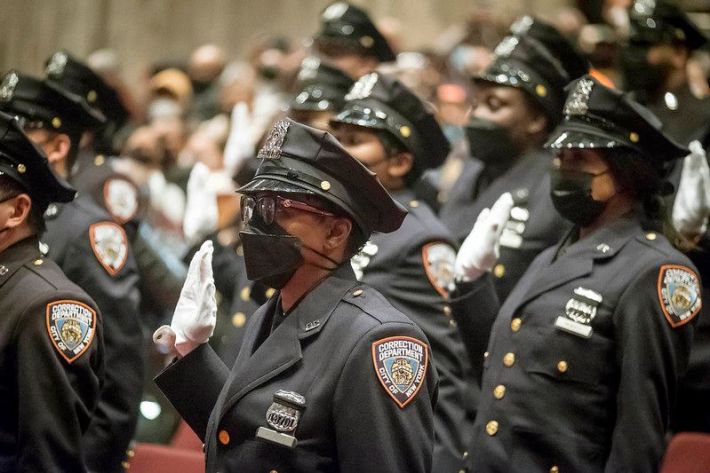
What are the hurdles that prevent there being an effective disciplinary process to deal with these absences and this culture of corruption that you're describing?
The fastest way to discipline somebody is to suspend them, but you have to wield that sword in a limited fashion. You can't just suspend everybody every time they do something. You really need to do an investigation before suspending somebody. Certain cases where it's brazen and obvious, I'm comfortable suspending somebody. But the typical disciplinary process is a lengthy, lengthy process.
There's an investigation. Once the investigation is substantiated, they send that substantiated case to the trials division, which was my other division. The lawyers in the trials division evaluate the case, they have to draft charges, they have to serve the charges on the person. That person has the ability to have a lawyer represent them. In 99 percent of the cases, it's a union attorney. They have due process rights. Just like any other trial, they get discovery. We go for pre-trial settlement conferences in front of an OATH judge [the Office of Administrative Trials and Hearings, the City agency charged with conducting misconduct hearings for city workers, including Corrections Officers]. They could choose to settle, meaning admit guilt and sign, you know, a negotiated plea agreement that says, I'll settle this for this punishment.
But if they don't want to settle, we have to take it to trial, which obviously takes time. It's a very lengthy process. And this course is frustrating, because when you know that somebody did something wrong, everybody, the public, they just want to know, why isn't this person disciplined? You especially hear from the public when a detainee dies. "Why isn't this guy punished? Why isn't this guy fired?" Well, it’s because, fortunately or unfortunately, workers have due process rights, and they have an opportunity to fight the discipline.
So there’s the due process that comes with the administrative discipline process. But there’s also just a profusion of legal, contractual and just customs, that really make the disciplinary process ineffective?
Yes, that is true. For example, when a staff member is sick, they are supposed to be home. There is a Department policy, which could be changed, that says you cannot say that they're not home unless the investigator knocks like 40 times, calls 20 times. There is an almost clownish amount of times that you have to do something before you could legitimately say that the person is "out of residence."
Part of the issue is, OATH. OATH goes by their own precedent and their own longstanding case law and practices. And it took almost till the very end of my tenure to get them to actually follow the disciplinary guidelines that were put out by the Nunez consent decree.
Under the Nunez consent decree, we were required to seek termination of people for doing certain things like punching an inmate in the head, or injuring somebody while they were in restraints. But OATH was not following that requirement. So you had this completely ridiculous situation where my attorneys were coming forward to OATH and saying, "Here's the case, here's the video. And because of our disciplinary guidelines we are seeking, if they don't settle, we're going to be seeking termination at trial."
But that wasn’t the precedent in OATH cases, and what OATH could not absorb in its mindset was, its precedent sucks. Officers are continuing to do what they're doing because they know that OATH’s punishment is mild. That is why the Nunez consent decree happened, and the disciplinary guidelines were elevated. And if you're not going to follow the consent decree, you're screwing the entire thing up. You're negating every reform that we're trying to have on the disciplinary process.
The federal monitor was prescribing how you should do your job. But the federal monitor failed to consider the fact that he also needs to order the OATH judges to tighten up its process a little bit.
What ended up happening was an uncomfortable few conversations. The federal monitor said, "Listen, this was a lawsuit that was resolved against the City of New York, not the Department of Correction only, the City of New York, and you, OATH, fall under that rubric. You cannot continue to say that this does not apply to you."
The union and the union's lawyers influence the judge. This whole fucking thing is a racket. You have to understand that unless somebody threatens litigation, they're going to bow down and capitulate to the unions. So OATH was saying the guidelines do not apply to us until the federal monitor came in and said, "Actually, it does, and we're going to take this further if you don't comply." Finally, they came into line, and people started getting terminated.
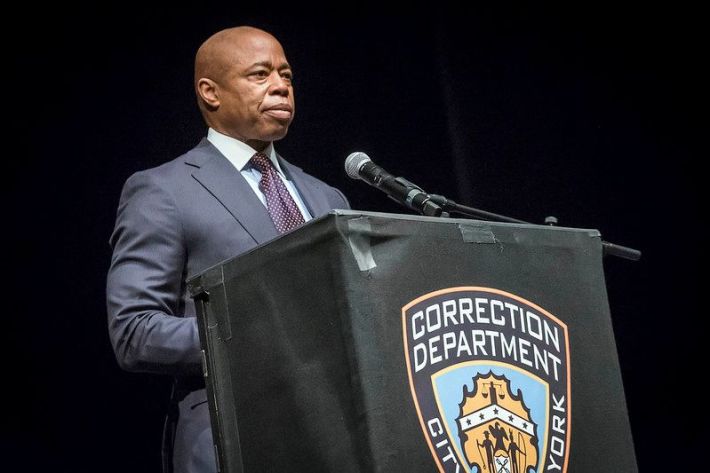
Who made the decision to fire you?
I believe that is the unions, influencing Molina [Mayor Eric Adams' new Commissioner of Corrections, Louis A. Molina]. I don't know if Adams was intimately involved. Molina is a puppet for the unions.
The unions asked Molina to fire you?
When Vinnie Schiraldi became Commissioner, he met with the unions. And I know that they had asked him to get rid of me. He told me that. They were chanting my name at a rally. I know that Benny Boscio had that conversation with Molina just like he had with Schiraldi. The only difference is Molina didn't bother to get to know me at all. He fired me on his first day on the job.
So it's back to dysfunctional business as usual on Rikers Island?
One hundred percent. Molina is making a lot of horrible decisions. I worry about what it means. The disciplinary cases that already exist in the trials division will hopefully be handled appropriately. But I do not believe that new cases are going to be generated in the frequency and the capacity that they need to be.
How do you fix Rikers Island?
A federal receivership. A court would appoint a person or a group of people to oversee Rikers Island and answer to the court rather than the mayor.
So all the contracts, all the OATH stuff, all the hamstringing policy directives, none of that would matter anymore? The only thing that would matter would be a federally empowered administrator, known as a Special Master under federal law, that would be answerable to a federal judge, absolutely running Rikers Island.
Yes.
That's the only solution?
That's the only solution at this point. Particularly because you need someone above the political corruption.
Benny Boscio, COBA's president, sent Hell Gate this statement:
It’s very ironic that Sarena ‘Sour Grapes’ Townsend now believes that the only solution to fix the problems at the city’s jails is through a Federal Receivership, yet she never suggested that once while she was part of one of the most dysfunctional and corrupt management teams the DOC has ever had. The truth and Sarena Townsend have never been in the same room and her latest allegations about our union and our members are patently false. She has spent years elevating herself and grandstanding before a Federal Monitor by destroying the careers of working class Black and Brown essential workers, who risked everything to keep our city safe during the pandemic. She is a disgrace to our profession and should be ashamed of herself.
Patrick Ferraiuolo, president of the Correction Captains' Association:
I take umbrage with Mrs. Townsend accusing the unions, including mine - the Correction Captains' Association, as being corrupt. My role as President of the CCA is to represent my members and protect their rights, which I have done for over 30 years in many different roles in the union. Correction Captains have a right to contest any charges that are brought forth against them and are also entitled to representation.
OATH:
For all disciplinary decisions, including those involving DOC employees, OATH judges write legally sound recommended decisions that are based on the facts and the governing laws and standards.
Hell Gate has reached out to all parties named in this interview for comment. We'll update this post accordingly.
Thanks for reading!
Give us your email address to keep reading two more articles for free
See all subscription optionsStay in touch
Sign up for our free newsletter
More from Hell Gate
A Fired Google Engineer on Protesting the Company’s ‘Terrible Path in Their Pursuit of Money at the Expense of Human Life’
Zelda is part of a group of workers fired after participating in last week's No Tech for Apartheid demonstration.
Two West Village Newcomers Bring Fresh, Delicious Energy to the City’s Increasingly Predictable Burger Game
Burgerhead and Smacking Burger (located in a gas station) surprise and delight with their simple pleasures.
Eric Adams Still Wants to Cut Library Funding—But Don’t Worry, We’re Getting 1,200 More Cops
And more news for your Thursday.
This NY Times Columnist Should Probably Not Be Teaching John Cage to Columbia Students
John McWhorter can't be serious. He just can't be.
One Weird Trick for Getting Away With Obscuring Your License Plate
New York state lawmakers increased penalties for toll scofflaws, but also explicitly gave cops the power to cut them loose.
